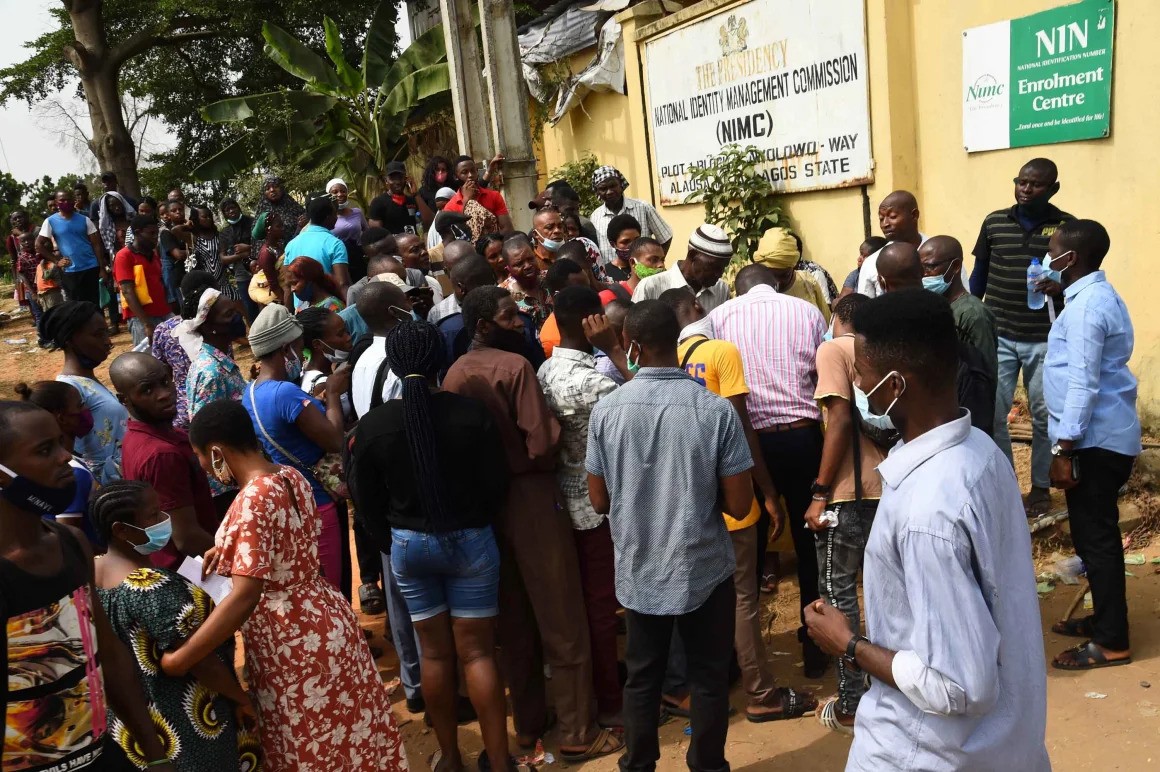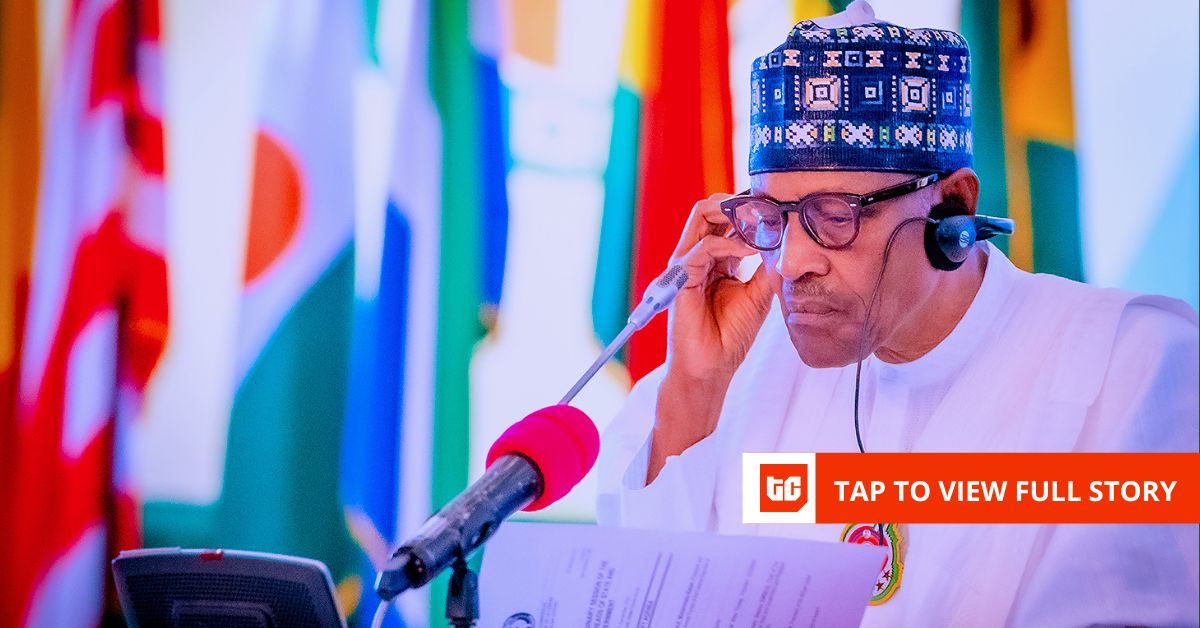Muhammadu Buhari died in London on July 13, 2025, aged 82. He had ruled Nigeria as a military leader in the 1980s before returning as an elected president three decades later.
The family and his longtime spokesman, Garba Shehu, announced the death and have no cause.
Born in Daura in 1942, Buhari first seized power in 1983. He returned to office democratically from 2015 to 2023. Under his second act, internet penetration roughly doubled, and the Nigerian technology ecosystem grew significantly. Yet, the same administration’s troops shot and killed #EndSARS peaceful protesters, froze crowdfunding accounts, and in 2021, cut millions of Nigerians off Twitter. This sequence of events, amongst others, left many in Nigeria’s youthful technology community regarding him less as a patron, and more as an impediment.
During his eight civilian years, the ICT sector grew from 8.5% of GDP in 2015 to 19.54% in Q2 2023, broadband penetration rose from 6% to 46%, and Nigeria minted a few technology unicorns, including Flutterwave, OPay, Interswitch and Andela. Over 150 million mobile lines were linked to a national ID scheme, and six cities welcomed Africa’s first multi-operator 5G rollout.
Yet, the downsides were equally significant. Amnesty International put the Lekki Toll Gate death toll at least 12. Estimates say the seven-month Twitter ban cost local businesses millions of dollars. A Central Bank clampdown on cryptocurrency and a general lack of optimism sent a tide of young tech talent abroad. For many in the ecosystem, Buhari’s rule is remembered as much for the severe policies as for the faster Internet speeds.
Muhammadu Buhari took office in 2015, inheriting a nascent digital sector just as Nigeria’s youthful population was rapidly embracing the possibilities of the internet age. Nigeria’s tech ecosystem was budding: e-commerce ventures were novel, broadband penetration stood in single digits, and the idea of a Nigerian ‘unicorn’ was far-fetched.
The optimism drew capital and attention. The President hosted Meta’s Mark Zuckerberg in 2016, who came calling and saw in Nigeria a vibrant market brimming with creators and consumers. Buhari told Microsoft’s president in 2022 that Nigeria was “ready to lead Africa’s digital tech race,” urging the company to expand its investments and train millions of Nigerians.
But even at this high point, Buhari’s economic conservatism constrained the same digital generation he was courting. A rigid foreign-exchange regime, with multiple exchange rates, a 41-item import blacklist (ranging from rice to fertiliser), and an ever-shrinking naira-card spending cap made it difficult for local tech companies to pay for services and settle foreign SaaS bills. By 2019, the monthly limit on naira cards for overseas payments had been cut from $12,500 to $100/month in four years, a 99% drop. That contrast, soaring connectivity, yet strangled currency, foreshadowed the wider duality that would define Buhari’s tech legacy.
By October 2020, the tension erupted.
The October 2020 #EndSARS protests exposed a gulf between a digital generation and an analogue state. Activists used hashtags, livestreams and fintech apps to organise, raise millions and share evidence of police violence. When commercial banks, under pressure from security agencies, froze the protesters’ crowdfunding accounts, young people simply pivoted to cryptocurrency.
Buhari’s response was brutal. Soldiers opened fire on peaceful protesters at the Lekki Toll Gate on 20 October. Instagram Live streams, notably by DJ Switch, showed the shooting in real time even as officials denied any deaths. The state followed up by arresting volunteers, intimidating them, sending many others into hiding, and freezing protest-linked bank accounts. Critics said the administration’s enthusiasm for a digital economy didn’t extend to protecting digital freedoms on which that economy depends.
Buhari’s restrictive stance on free expression was cemented nine months later. On June 4, 2021, Twitter deleted a presidential tweet that threatened secessionists “in the language they understand”. Less than two hours later, Nigeria’s information minister, Lai Mohammed, announced the “indefinite suspension” of Twitter in Nigeria. Overnight, one of Nigeria’s most important communications platforms went dark; digitally savvy users turned to VPNs. For many, it was a deja vu from Buhari’s military days when his government jailed journalists.
For a leader who had benefited from social media in his election campaigns and who had been courting Big Tech investments, this was a jarring about-face. The ban lasted for seven months, but the damage was done: businesses lost customers, and ordinary people lost a voice. A court later ruled the ban illegal, and eventually the government backed down after extracting face-saving concessions from Twitter.
Buhari spoke of Nigeria’s ambition to become “the epicentre for innovative emerging technology in Africa.” Yet, his central bank issued diktats that strangled cryptocurrency trading, ironically pushing many young developers to leave for places where they had more prospects. He conferred national honours on young Nigerians putting the country on the global tech map, even as thousands of those same bright minds fled each year for better livelihoods abroad.
The hard numbers on Buhari’s watch are impressive, but each sits beside an inconvenient qualifier. Mobile broadband coverage, for instance, climbed from 6% of the population in 2015 to roughly 46% by the time he left office. Two new subsea cables tripled bandwidth. Nigeria launched 4G nationwide and leapt into 5G, auctioning spectrum that put the country at the forefront of Africa’s high-speed mobile internet rollout. By Q1 2021, the ICT sector was growing faster than any other, and Buhari wasted no opportunity to highlight that fact. “Our emphasis on the development of our digital economy has positioned the sector as a prominent factor in our economy,” he said in 2022 while welcoming the Microsoft Corporation at the launch of its $200 million Abuja hub, noting the role the industry played in lifting the country out of a recession during the pandemic year. Yet, fibre rollout remained slow due to state-level right-of-way charges, and the national grid was wheezing at less than 5GW when Buhari left office.
By Buhari’s second term, he surrounded himself with tech-minded lieutenants, most notably Dr. Isa Ali Pantami, his Minister of Communications and Digital Economy, and Oswald Osaretin Guobadia, his Senior Special Assistant on Digital Transformation, who were critical in Buhari’s digital drive. His government crafted ambitious strategies: a National Digital Economy Policy and Strategy 2020–2030 to “reposition the economy through technology,” and a new Broadband Plan that aimed to achieve 70% broadband connectivity by 2025.
Under Buhari, millions of previously excluded citizens were drawn into the fold of digital society. His government undertook a massive but controversial campaign to register every phone user’s identity, linking SIM cards to a national ID number. The effort was messy, with deadlines extended repeatedly and long queues forming at enrollment centres, but it paid off in raw numbers. When Buhari took office, only about 7 million Nigerians had the national ID; by his last full year, that figure had swelled to nearly 100 million. For a country that struggled for decades to document its populace, it was a remarkable feat. And it enabled a host of digital services, slashing KYC times for banks and fintechs. Buhari framed the NIN drive as a security necessity and as a development tool. It was both, though privacy concerns emerged. Still, to many Nigerians, the retired general would be remembered as the president who finally forced the bureaucracy to issue them an identity they could use.

Money and talent followed the same pattern of boom at a cost. Venture capital rocketed from $70 million in 2015 to over $1 billion in 2022. Yet, a rigid forex regime forced startups to hunt the parallel market for dollars, and some of Nigeria’s most promising talent left in droves. The pipeline for technical talent grew significantly, then drained westward.
Arguably, Buhari’s most consequential contribution to the tech ecosystem was giving political backing to pro-innovation reforms. In 2022, with only months left in office, he signed the Nigeria Startup Act, a pioneering law co-created with the startup community to create an enabling regulatory environment and infrastructure to support innovation. It offered tax breaks, regulatory certainty, and direct funding to new enterprises. It was a long-desired business-friendly legislation for tech entrepreneurs, including those in the crypto and ride-hailing sectors, who had been severely affected by a 2020 and 2021 ban. It was a symbolic moment: the septuagenarian President tweeting on his official account about incentives for startups, in a nation where only a few years earlier tech innovators often felt invisible to those in power.
The same Buhari would go on to introduce an ill-fated and controversial currency redesign policy in the buildup to the 2023 elections that triggered a nationwide cash crunch and upended daily life for millions of Nigerians. But while the move was widely criticised for its poor execution and harsh impact on informal workers and small businesses, it proved a blessing in disguise for digital payments.
As cash dried up and traditional banks struggled to handle the surge in online transactions, fintechs like OPay, PalmPay and Moniepoint became the main alternatives to banks for money transfer and bill payments during the cash crunch.
According to Nigeria Inter-Bank Settlement System (NIBSS) data, mobile money operators, including OPay and PalmPay, processed ₦46.6 trillion in transactions in 2023, a 140% year-on-year growth. Moniepoint alone accounted for a substantial portion of this activity. In 2023, it processed more than 5.2 billion transactions. Fintechs’ market presence also surged: a KPMG report found 58% of Nigerians switched from banks to fintechs during the 2023 cash crunch. Digital payment transactions climbed 52% from January to October 2023.
People waiting outside a bank in Lagos during the cash crunch. Image Credit: Michele Spatari/AFP/Getty Images
Buhari’s legacy with the tech ecosystem rests on an awkward symmetry: infrastructure up, trust down. When he left office on 29 May 2023, he returned, as promised, to his farm in Daura. Critics retort that much of Nigeria’s tech success happened despite the government, not because of it. They recall how fintech startups had to route around regulatory roadblocks, how young Nigerians turned to tech as an escape from joblessness when Buhari’s economic policies couldn’t deliver jobs. There is also a poignant sense of what might have been.
As Nigeria continues its journey, with the current administration promising to prioritise technology and innovation, Buhari’s chapter stands as a testament to the possibilities and perils of steering a young, ambitious technology ecosystem from the perch of power. It’s a reminder that nurturing a technology revolution in a country as complex as Nigeria, beyond blueprints and promises, requires a respect for the freedoms and foundations that allow innovation to flourish. Civil society critics say Buhari never fully shed his autocratic streak. They point to the Twitter ban and proposed surveillance laws as evidence.
Buhari’s true legacy to the ecosystem and young Nigerians might be how his contradictory policies sharpened their instinct for vigilance. After him, builders in the ecosystem know how fast fortunes can turn, and how easily access can vanish. It’s a tougher inheritance than fibre, but perhaps, ultimately, a more resilient one.










